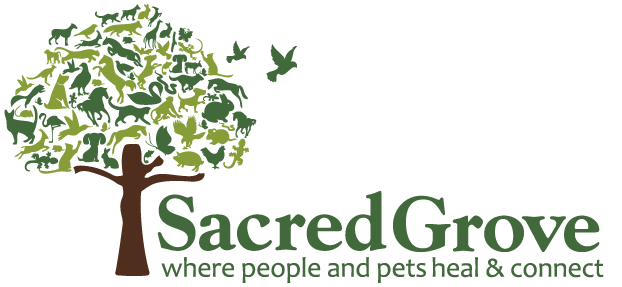I’m not the only one doing this, right? We all tell stories about our animals.
Humans are natural storytellers
We love a good story. In the old days, the people gathered around the main fire or the main hall as the storyteller took the stage. They told stories about our ancestors, our heroes, our religious beliefs. How the world was created. Or maybe we listened to our Papa or Gramie tell stories about their lives as we ate lunch with them.
These days, we probably read a book, binge watch a great series, listen to a podcast…or share the latest gossip and goings on about our family members, neighbors and friends.
Stories make sense of our life
This picture is of the Storytellers figures I collected from Jemez Pueblo of New Mexico. Do you see the women (and the one little girl) holding the children and telling the story? Even the Corn Maiden in the upper left corner is telling her story. For me, they honor storytellers everywhere.
Stories have power
Stories grip us, stay with us, make us think about ourselves and the world we live in.
Personally, I’m smitten with Kindred, by Hugo Award Winner, Octavia E. Butler. I’ve waited 40 years to see that story make it to the screen. It finally brings a mind-blowing science fiction story about slavery in America to a much larger audience.
What about stories about our animals?
Stories about our animals have power, too. If we never let go of the horrendous rescue story, we keep our animals in the same old victim role. It’s like tangling them up in an old, smelly, rotten net that they can never get out of.
Or when we focus our story on what’s driving us nuts, what we’re worried about, we keep them stuck, too. It’s as if we’ve written a book about them and re-read that chapter every day, to them and to ourselves.
Try telling a new story about your animal
I know the story you tell is true, but does it leave a possibility for your animal to show up in a better way? For you to show up differently?
Could you open your mind to see your animal with compassion? To notice what’s great about them and tell that story? If something needs to change, can you find resources to help everyone in the family shift? Do you need to change your story, your viewpoint?
“What if?” – One way to tell a new story about your animal
A technique I use is to ask myself, “What if they could show up in a different way?” Especially if you’ve seen them doing that thing that you desire. I consciously let go of the old story for a little bit. (In dog language, I “shake it off”!) Then I picture that new version of them in my mind’s eye with joy and relief as I look at them with love.
It’s work to tell a story from the “what if” version of my animal. The little wins. The big ones. It helped when I practiced it over time, not just once. That’s because my energy and vision had to shift and that helped my animals shift.

